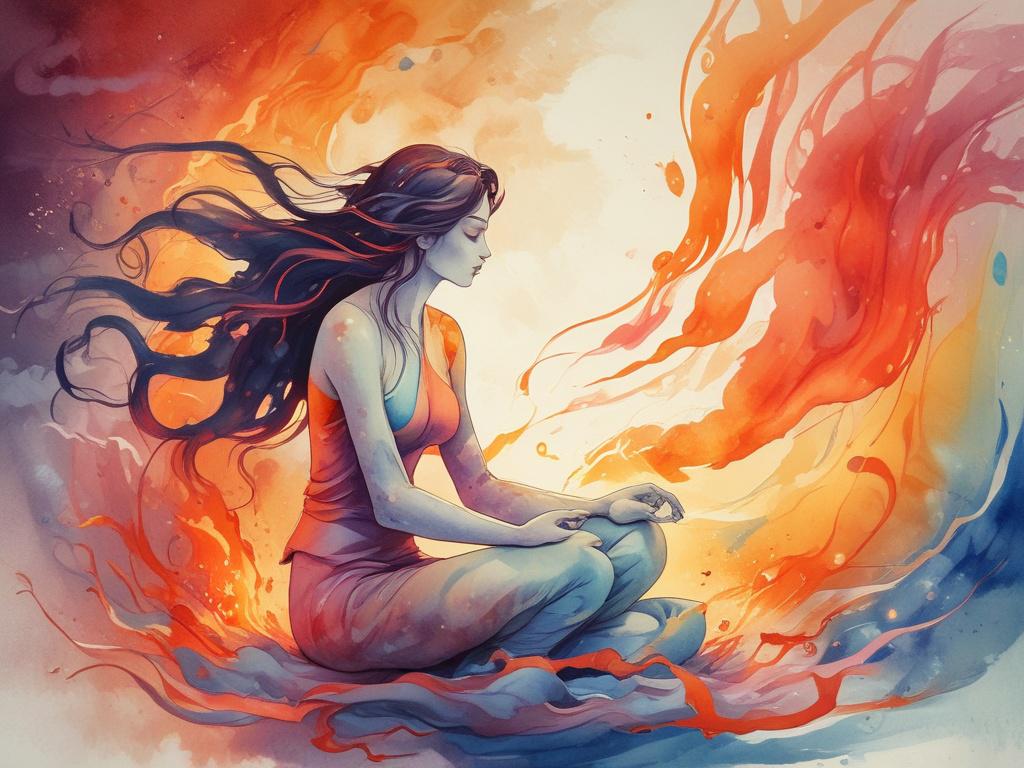
Feeling Deeply & Living Devotedly:
Not Disordered, Just Divine
Living Beyond Stoicism; Rooted in Reverence, Not Resistance
There is a certain reverence in softness; a courage in vulnerability, in a world that often prizes stoic sharpness. To tremble, ache, weep, and overflow is not surrender or loss of control. It is sacred attunement to your inner tides, a relationship with the pulse of your own soul.
The Stoic Legacy and Its Limits
Stoicism, founded by Zeno of Citium around 300 BCE and developed by thinkers like Epictetus, Seneca, and Marcus Aurelius, taught mastery over emotion through reason. Marcus Aurelius wrote, “You have power over your mind - not outside events. Realize this, and you will find strength.” Stoicism valued apatheia; freedom from destructive passions, and praised calm endurance as the highest virtue. This was a radical and necessary response to a chaotic world, providing resilience and focus.
Yet, over centuries, this philosophy evolved culturally into an ideal where emotional expression became suspect; something to be tamed or denied. Stillness was prized over sensation; detachment over deep presence; control over flow.
As Seneca cautioned, “No man is free who is not master of himself.” But mastery was often interpreted as emotional suppression rather than emotional wisdom.
Devotional Emotionalism: A Sacred Alternative
But what if feeling is not chaos or weakness?
What if it is, instead, wisdom?
The modern psychologist and writer Brené Brown reminds us, “Vulnerability is not winning or losing; it’s having the courage to show up and be seen when we have no control over the outcome.” To cry when called, to scream into the ocean, to laugh too loudly in a quiet room, to let grief sing through your ribs and joy dance in your eyes; this is not lack of discipline. It is a different kind of strength: one that does not armor but remains open.
Where Stoicism says, “Detach.”
This path says, “Descend.”
Descend into the fullness of experience. Let it touch your heart, shape you, and let you rise not hardened but deeply attuned.
Discipline Without Denial
Honoring your feelings does not mean abandoning discipline. In fact, discipline can hold your expression like ritual holds prayer or a chalice holds wine.
You can have boundaries and emotions.
You can fall apart on schedule, then breathe, rise, and return.
You can plan your week and still let the moon tug you off course.
This is not imbalance; it is rhythm.
Discipline here is devotion; to showing up, to being real, to refusing numbness just to survive.
As Marcus Aurelius advised, “The impediment to action advances action. What stands in the way becomes the way.” Your emotions, felt and embraced, are part of that way.
Sacred Practices for the Deep Feeler with a Devotional Spine
- Ritualize Your Feeling: Create altars for grief, rage, joy. Name these emotions sacred.
- Time-Bound Spirals: Allow intentional space to spiral, then close it with blessing and grounding.
- Emotional Integrity: Speak your truth, but do not make others carry your weight.
- Sovereign Surrender: Fall apart not as escape, but as a sacred return to your core.
The Middle Path: Beyond Rigid Stoicism and Emotional Chaos
You don’t have to become a rigid monk of emotionless living,
nor drown in every wave that touches your heart.
There is a middle path; where the soul speaks loudly,
and the Self listens clearly.
Where feeling is not the enemy of focus,
and discipline is not the enemy of expression.
This is emotional alchemy: the sacred opposite of stoicism; not wild flailing, but wild feeling, tethered by trust.
A Closing Whisper from the Soul
You were not made to be stone.
You were made of water, fire, and song.
Made to laugh with your whole belly and love with trembling hands.
Made to ride the wave and even build a raft from it, too.
So let the feelings come.
Let the structure hold.
And let this be your sacred paradox:
You are soft.
You are sovereign.
You are both.
